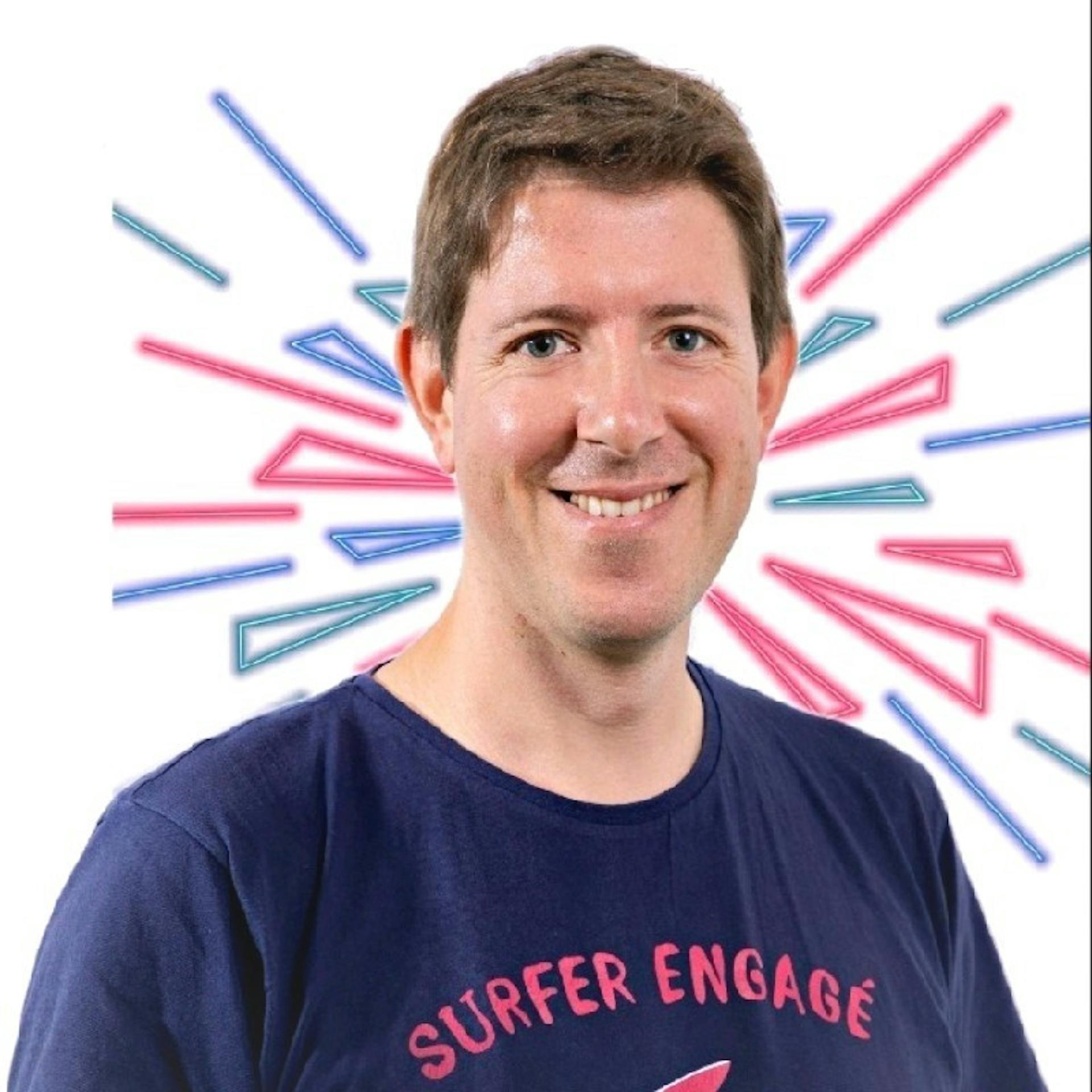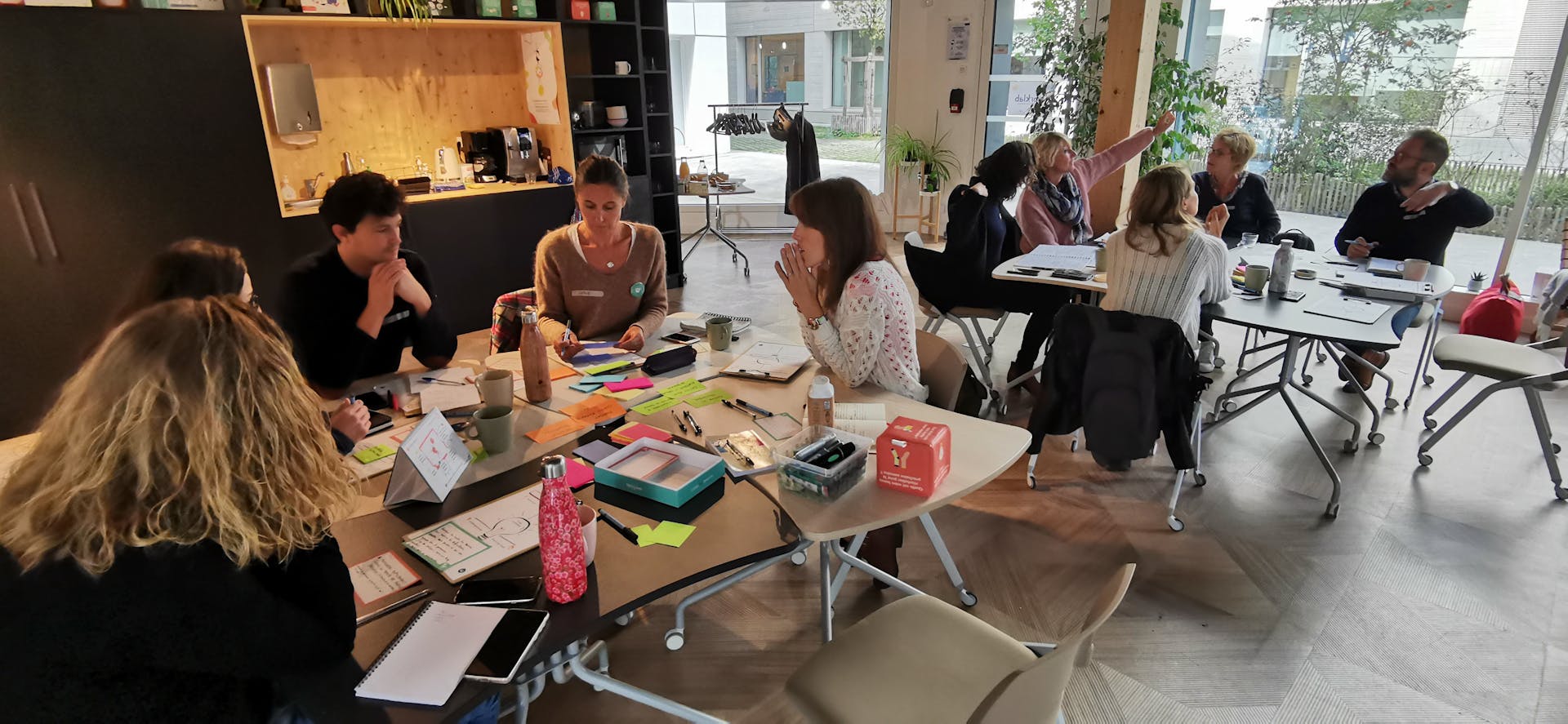"Working effectively in a group setting can be learned!"
When David and Sacha, two project managers in banking see the success of the collaborative methods they apply in their way of working, they decide to share them with as many people as possible, by creating the blog "Life is a serious game." Faced with the growing interest in their blog, the two friends created Worklab in 2015, to train professionals in collaborative methods. We met Thierry Barone, the 3rd partner of Worklab, who gives us a presentation!
The Worklab version of facilitation
At Worklab, we approach facilitation as a toolbox to equip all group facilitators who want to engage groups in change. We do not specifically train professional facilitators, we develop a skill rather than a profession. The people we train are aware that they will have to work in a group, and working effectively in a group can be learned. In our group facilitation training, we propose tools to seek commitment within groups. Relying on tools provides a structure for conducting meetings and guarantees a good level of results.
A skill passed on by other organizations. What characterizes you ?
We have the status of a young innovative company. Part of our activity is focused on R&D where we experiment with collective intelligence tools. We regularly test these tools during parties and afterworks with our partners and clients. We also share our own tools in our lives and in our books: "Survival Guide to Meetings", "Survival Guide to Remote Meetings" and the latest "Survival Guide to Hybrid Management";

Thierry Barone - associé du Worklab
And you Thierry ? Why facilitation ?
I spent more than 15 years in a consulting firm in Paris working on project management and IT projects. I worked on projects that were supposed to be transformative, but which were not in fact. There were so many "wars" between departments that we produced transformation tools that were never used. This experience made me want to do collaborative work. I was one of Worklab's first clients and was able to apply their tools to my clients. I really saw a difference in the projects I led. 1 year and a half after this training, I moved to Nantes with my partner and joined Worklab alongside the 2 co-founders as the 3rd associate;
A multi-skilled team
In the worklab, we are 10 employees and except for two support functions, we are all facilitators. We prepare and lead group sessions, and at the same time, we train on these practices, each with different specialties. For example, I work on collaborative management;
As far as our profiles are concerned, the three partners have similar backgrounds, as engineers in project management and organizational transformation. Then, in the team, we find a diversity of profiles coming from different sectors and professions. For example, we had a former lawyer, and people from the construction and aeronautics sectors. What do they have in common? These people all needed to engage groups on projects in their previous missions and had this sensitivity for collaborative work;
A diversity of customers
Among our clients, we have local authorities and daycare management teams. We have also worked for the Léo Lagrange Federation, for Unis Cité, the SOS Group, and for small associations like TED X in Nantes. Our clients are very diverse and this is a reflection of our conviction and our slogan: #EvolutionWillCommon. In all sectors of activity, there is a need for transformation and the collaborative mode must be the standard way of working. We are convinced that this way of working will allow us to move towards other possibilities;

Some customer successes
We have supported Enedis and EDF and trained thousands of people internally. These companies then took these training topics in hand to set up a collaborative transformation process. It was particularly impactful at Enedis, because internally, they took ownership of their way of working and many projects were born from this approach. We also helped Vinci, which uses these tools to work on their environmental impact and on diversity and inclusiveness issues.
Efficiency = Quality x Adhesion
We have noticed that each time the effectiveness of an action plan depends on the relevance of the actors who have been brought together to carry it out and the adhesion of all to a common project. The fact that employees from several departments are brought together, that everyone understands the ins and outs of a project and agree together on ideas that make sense, makes the project effective. That's why we are moving towards collaboration and why we are convinced that these tools must be made available to all those who want to lead transformations;

Worklab X Makesense
For makesense, we started with a first training: group facilitation, which is a good entry point to professionalize in terms of group facilitation skills. The groups we facilitate range from 6 to 12 people;
Future projects of the Worklab ?
We have done a lot of evangelizing and planting seeds. Now, we would like to choose our impact topics a little more, to go towards accompanying transformations, especially on the topics of ecological transition. Finally, we are going to develop our ways of doing things to ensure the conditions for success, empowerment of teams and support over the long term, to make sure that things are put in place internally.
To go further
👉 Here are the Worklab training courses.
